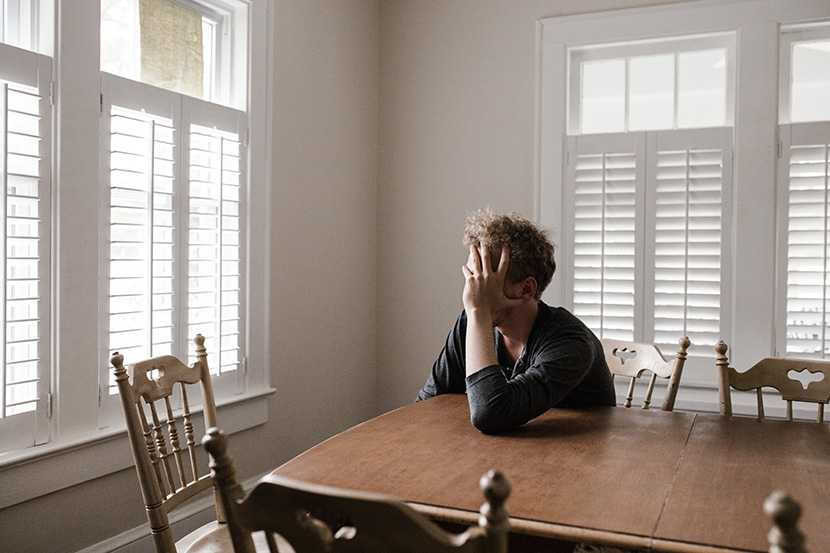Blog
How to manage anxiety in today’s unsettling world
Anxiety is a normal, healthy emotion. And during COVID-19 concerns, it can actually be beneficial – helping us be more cautious of ourselves and those around us. However, when irrational thoughts, unrealistic and unsubstantiated fears or chronic stress and anxiety begin to take over, we risk compromising our own wellness.
Issue: Our fear of the unknown
Generally, in life, any unknowns are likely to cause us stress, anxiety or panic because we don’t know what lies ahead. And for many people, it’s easy to jump into ‘worst-case-scenario’ mode (e.g. ‘I’ll be unemployed forever’).
It can also be hard to get a grip when information is continually changing.
So for many of us, it’s the uncertainty that begins to spread panic.
Strategy: Find acceptance and control
Firstly, you need to accept what you can’t control, and focus on what you can. We have a tendency to fear what we don’t understand – and what we fear, we seek to control. (A real-life example of this is the panic-buying currently sweeping the nation.)
Things that you can control include:
- Your personal hygiene (washing your hands, avoiding contact with your face)
- Following social distancing recommendations
- Maintaining a positive mindset
While this is seemingly boring stuff, the best advice usually is.
Issue: Unnecessary hype – and the panic that results
As humans, we’re notoriously susceptible to conformity. If we witness something out of the ordinary, we look to others on how to respond.
This goes beyond just looking to our neighbour though. It extends to the news and media too. And in todays’ ever-so-connected digital age, our go-to source is, of course, the internet.
The downside here is that anyone – regardless of their qualifications or expertise – can post online. This means we can easily fall victim to fake news, media hype and misinformation. And that breeds panic.
Strategy: Seek credible sources
Of course it’s important to stay informed. But be sure you’re seeking information from reputable, impartial sources.
The best place to start is a government website – followed by other authorities, like doctors and scientists.
Meanwhile, stay away from alarmist news sites. And limit your time on social media.
But most importantly, avoid continually refreshing the news (even if it is a credible source). This can lead to increased feelings of anxiety and panic.
And if your stress is getting too much? Consider ceasing your media exposure entirely.
Issue: Self-isolation and quarantine
The social-distancing, isolation and quarantine recommendations will undoubtedly permeate all of our lives in one way or another.
It’s arguably one of the biggest factors that will impact our mindsets during this outbreak, too.
This is because it will affect the way we work and socialise – which are both major aspects of our day-to-day lives.
So if you do have to work from home or remain in quarantine or isolation, there are some important techniques you should be employing.
Strategy: Stay connected
Remaining connected is vital. Humans are pack-animals, so we like to be with others.
While you might not be able to be in close physical proximity with your friends, colleagues or family members, you can still keep in touch in a range of ways.
Firstly, make use of video-call tools such as Skype, Zoom and FaceTime. Seeing people face-to-face offers a more personal touch than a standard audio call.
For work, take appointments and meetings via videoconferences and make use of real-time chat tools like Google Hangouts and WhatsApp.
Support from others has a powerful effect on us. It offers comfort and stability – which are especially important during confusing or frightening times.
Bonus strategy: Maintain a normal routine
In the middle of a crisis, it can often feel like nothing else matters. This type of thinking means we often let go of normal habits – like eating, sleeping and exercising – which we deem as unnecessary, or ‘less important’.
Conversely though, this is the best time to maintain your normal routines. Here’s why:
- Maintaining a routine draws you back to normality. If you were to start acting differently simply because of a crisis, things will obviously feel different as a result.
- The activities we do each day are an effective distractor from feelings of anxiety surrounding a crisis.
- These routines keep us healthy and happy. Adequate sleep and exercise are important for your immune system. And both can help you maintain a positive mindset, too.
Seeking support as a strategy
As a final point, it’s essential to remember that while feelings of anxiety and panic are uncomfortable, they’re also normal. The important thing is that you acknowledge them, rather than suppress them.
It can be helpful to write them down or speak with someone – even if it’s just a (constructive) vent. If we work collaboratively, it’s likely to be a much more positive, manageable time for everyone.
But if you do find yourself feeling overwhelmed, you may also want to consider support from a healthcare professional.
If you need help managing your feelings surrounding COVID-19, our experienced practitioners are here for you. To keep our staff and patients safe, we’re also conducting consultations via videoconference. Call 1300 995 636 to make an appointment or learn more.

